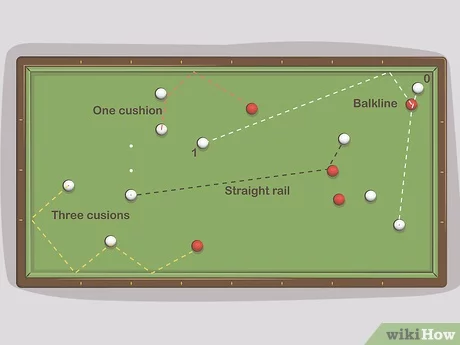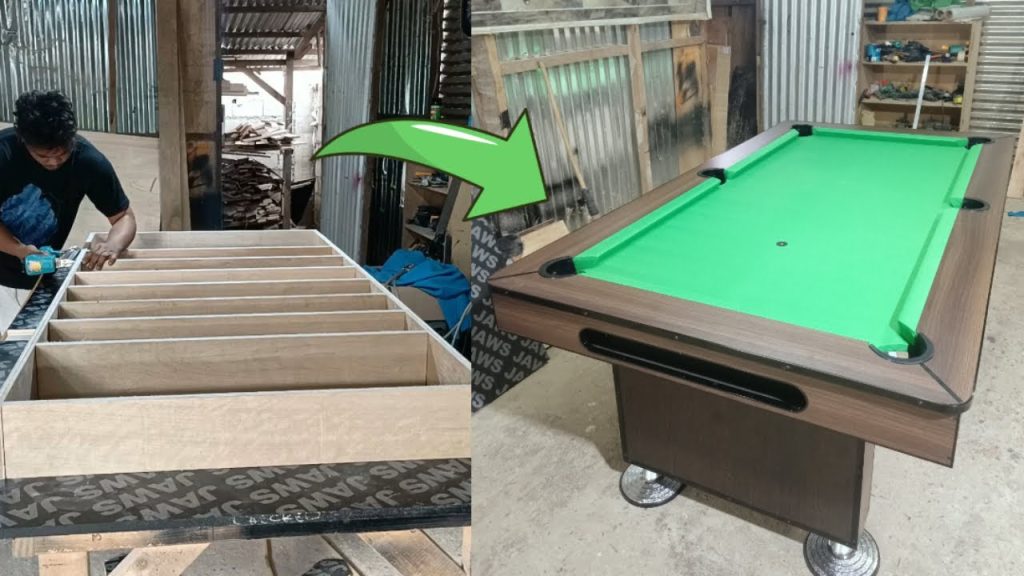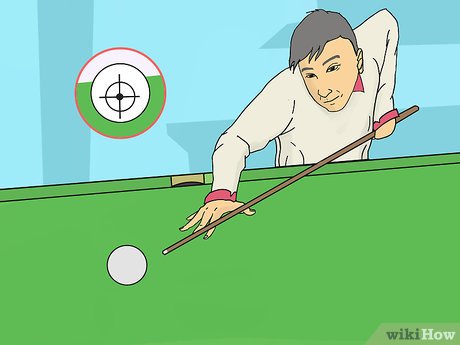Billiards is a fun and challenging game. It’s perfect for social gatherings.
Learning to play can seem tricky at first. But with some basic tips, you can start enjoying the game quickly. Billiards, also known as pool, involves skill, strategy, and a bit of practice. As a beginner, it’s important to understand the rules and basic techniques.
This game is not just about hitting balls into pockets; it’s about precision and planning your shots. Whether you’re playing at a bar, a friend’s house, or a local pool hall, knowing the fundamentals will boost your confidence. In this guide, we will cover everything you need to know to get started. From understanding the equipment to learning the basic shots, you’ll be on your way to playing like a pro in no time.
Introduction To Billiards
Billiards is a fascinating game that people of all ages can enjoy. It’s a game of skill, strategy, and precision. Whether you’re playing with friends or in a competitive setting, knowing the basics can enhance your experience.
Brief History
Billiards has a rich history dating back to the 15th century. It began as an outdoor game, similar to croquet. Over time, it moved indoors and evolved into the game we know today. The game became popular in Europe and later spread to the rest of the world. Many famous figures, including kings and presidents, have played billiards.
Different Types Of Billiards
There are several types of billiards games, each with its own rules. The most common ones are Pool, Snooker, and Carom. Pool is popular in the United States, with variations like Eight-Ball and Nine-Ball. Snooker, known for its larger table and smaller balls, is popular in the UK. Carom, played without pockets, is more challenging and requires great skill. Each type offers a unique experience and set of challenges.
Essential Equipment
Billiards is a fun and engaging game. It requires skill and practice. If you are new, you need the right equipment to start. This section covers the essential equipment for beginners.
Billiard Table
The billiard table is the main piece of equipment. It comes in various sizes. For beginners, a standard size is best. The surface is usually made of slate. It is covered with green felt. The table has six pockets for the balls. Make sure your table is level. This ensures fair play.
Cue Sticks
Cue sticks are used to strike the balls. They are usually made of wood. Some are made of fiberglass or graphite. Beginners should choose a light cue stick. This makes it easier to control. The stick has a tip at the end. Make sure the tip is smooth and round. It helps in better striking.
Balls
The balls are also essential. A standard set includes 16 balls. There are 15 numbered balls and one cue ball. The cue ball is white. The other balls have different colors and numbers. Each ball has a specific purpose. Make sure your balls are clean and smooth. This helps in better rolling on the table.
Setting Up The Game
Learning how to play billiards is fun and exciting. Setting up the game properly ensures a fair and enjoyable experience. Follow these steps to prepare the table and balls for a great game.
Table Layout
The first step in setting up a billiards game is preparing the table. Make sure the table is clean and the felt is smooth. Ensure the table is level for an even playing surface. Check the pockets to ensure they are empty and ready for play.
Place the cue ball at the starting position. This is usually in the “kitchen” area. The kitchen is the space between the head rail and the head string. The head string is an imaginary line between the second set of diamonds on each side of the table.
Ball Arrangement
Proper ball arrangement is key to a fair game. Use the triangle rack to arrange the balls. Place the rack at the foot spot of the table. This spot is marked by a small dot on the felt near the foot rail.
Follow this order to rack the balls:
- Place the 1 ball at the top of the triangle.
- Put the 8 ball in the center.
- Arrange the other balls randomly, ensuring stripes and solids are mixed.
Once the balls are in position, remove the rack carefully. Make sure the balls stay in place. The game is now ready to begin!

Credit: www.youtube.com
Basic Rules And Objectives
Billiards is a classic game loved by many. Understanding the basic rules and objectives helps beginners enjoy the game more. The main goal is to score points by hitting balls into pockets or against other balls. Here, we will explore the scoring system and common fouls in billiards.
Scoring System
In billiards, the scoring system varies depending on the type of game. Here are the basics:
- Eight-Ball: Players aim to pocket all their designated balls (stripes or solids) and then the eight ball.
- Nine-Ball: Players must hit the balls in numerical order, aiming to pocket the nine ball last.
- Straight Pool: Players score points by pocketing any ball on the table. The first to reach a set number of points wins.
Keeping track of points is crucial. Each game type has specific scoring rules, so understanding them is key.
Common Fouls
Fouls can disrupt the game. Knowing the common fouls helps players avoid penalties. Some typical fouls in billiards include:
- Scratching: The cue ball is pocketed.
- Jumping the cue ball off the table: The cue ball leaves the table.
- Failing to hit a ball: The cue ball does not contact any other ball.
- Double hit: Hitting the cue ball twice in one stroke.
Each foul typically results in a penalty, such as loss of turn or ball-in-hand for the opponent. By understanding and avoiding fouls, players can keep the game fair and fun.
Basic Techniques
Learning to play billiards can be an exciting journey. Understanding the basic techniques is key to improving your game. These techniques will help you hold the cue, stand correctly, and aim better. Let’s dive into the essential skills you need to get started.
Grip And Stance
First, focus on your grip. Hold the cue lightly with your dominant hand. Your grip should be relaxed but firm. This allows better control. Place your other hand on the table, forming a stable bridge for the cue.
Next, consider your stance. Stand with your feet shoulder-width apart. Position one foot slightly forward. Bend your knees a bit. Lean over the table, keeping your back straight. This stance helps with balance and precision.
Aiming And Striking
Now, let’s talk about aiming. Focus on the ball you want to hit. Imagine a line from the cue ball to the target ball. Align your cue with this line. This will improve your accuracy.
Striking the ball correctly is crucial. Use a smooth, controlled motion. Pull the cue back slowly. Then, push it forward to hit the cue ball. Aim to strike the ball in the center. This ensures it travels straight.
Practicing these basic techniques can make a big difference. With time, you will see improvement in your game. Enjoy the process and keep practicing!

Credit: www.wikihow.com
Developing Your Skills
Becoming skilled in billiards takes time and practice. Beginners should focus on building a strong foundation. This means understanding techniques and practicing them regularly. Developing your skills will make you a more confident player. Let’s dive into some practice drills and ways to improve accuracy.
Practice Drills
Practice drills help you become familiar with the table and the cues. Here are some essential drills:
- Straight Shots: Place a ball in front of a pocket. Practice hitting it straight in.
- Rail Shots: Place the ball near the rail. Try to hit it into a pocket.
- Speed Control: Hit the cue ball with different strengths. Learn how it affects the ball’s movement.
These drills will help improve your control and consistency. Repeat them daily for the best results.
Improving Accuracy
Accuracy is crucial in billiards. Here are some tips to enhance your precision:
- Stance: Position your feet shoulder-width apart. Keep your body stable.
- Aiming: Focus on the target ball. Use your cue to aim precisely.
- Follow-through: Make sure your stroke is smooth. Follow through after hitting the ball.
Practicing these steps will increase your shot accuracy. Remember, consistency is key.
Use these tips to develop your billiard skills. Regular practice will lead to improvement.
Strategies For Beginners
Starting with billiards can be exciting and challenging. Having the right strategies is key to improving your game. This section will provide some essential strategies to help beginners get started. These strategies will focus on both defensive play and offensive play.
Defensive Play
Defensive play in billiards is about positioning the cue ball in a way that makes it hard for your opponent to score. This can be achieved through the following techniques:
- Safety Shots: Place the cue ball behind other balls to block your opponent’s shot.
- Soft Shots: Use gentle strokes to leave the cue ball in awkward positions.
- Bank Shots: Hit the cue ball off the rail to make it difficult for your opponent.
Focus on control and accuracy to execute these shots well. This will frustrate your opponent and increase your chances of winning.
Offensive Play
Offensive play is about scoring points and winning the game. Here are some techniques to improve your offensive play:
- Break Shot: Start the game with a powerful shot to spread the balls.
- Combination Shots: Hit one ball into another to pocket the target ball.
- Position Play: Plan your shots to leave the cue ball in a favorable position for the next shot.
Practicing these techniques will help you become more confident and precise. Always remember to align your body and keep your eyes on the ball. Good positioning and shot planning are essential for successful offensive play.

Credit: www.youtube.com
Common Mistakes To Avoid
Billiards is a fun and challenging game. For beginners, it’s important to know the common mistakes to avoid. This will help improve your skills and enjoy the game more.
Overpowering Shots
Many beginners think that hitting the ball hard is the best strategy. This is not always true. Overpowering your shots can lead to less control. The ball may not go where you want it to go. It is better to focus on accuracy and control. Use a smooth and steady stroke. This will give you better results.
Neglecting Positioning
Positioning is key in billiards. Beginners often focus only on pocketing the ball. They forget to think about where the cue ball will end up. Good positioning makes your next shot easier. Plan your shots to leave the cue ball in a good spot. This will help you stay in control of the game. Always think one step ahead.
Building Confidence
Building confidence is crucial for beginners learning to play billiards. Confidence helps you enjoy the game and improve your skills. Here are some tips to build your confidence while playing billiards.
Playing With Others
Playing with others is a great way to build confidence. Here’s why:
- Learn from experienced players: Watch and learn their techniques.
- Friendly competition: Competing with others can be fun and motivating.
- Social interaction: Playing with friends can make the game enjoyable.
Start by playing with friends or family. This environment is less intimidating. You can also ask for tips and advice during the game. Over time, you will feel more confident in your abilities.
Joining A Club
Joining a billiards club can significantly boost your confidence. Here’s how:
- Regular practice: Clubs offer regular practice sessions.
- Expert guidance: Many clubs have coaches or experienced players to guide you.
- Community support: Being part of a community can be encouraging.
Search for local billiards clubs in your area. Visit a few clubs to find one that suits you. Engage in club activities and take advantage of any training programs they offer.
Building confidence in billiards takes time and practice. Playing with others and joining a club are effective ways to achieve this. Remember, the more you play, the more confident you will become.
Resources For Further Learning
Learning to play billiards can be exciting and fun. For beginners, many resources can help improve skills and understanding. These resources include instructional videos and books. Here, we will explore some valuable tools to get you started.
Instructional Videos
Watching instructional videos can be very helpful. Many experts share tips and techniques online. You can find videos on YouTube and other platforms. Look for videos that cover the basics of billiards. Pay attention to how they hold the cue and position their body. Practice what you see to improve your game.
Some channels offer step-by-step guides. They break down each shot and explain the rules. This visual learning can be useful for beginners. Watching others play can give you new ideas and strategies.
Books And Guides
Books and guides are another excellent resource. Many books cover the fundamentals of billiards. They explain the rules, techniques, and strategies. Reading can help you understand the game better.
Look for beginner-friendly books with clear instructions. Some books include pictures to illustrate points. These can be very helpful for visual learners. Guides often include drills and practice routines. Following these can improve your skills over time.
Local libraries or online stores usually have many options. Choose a book that matches your learning style. Combining reading with practice can make learning more effective.
Frequently Asked Questions
What Are The Basics Of Playing Billiards?
To start playing billiards, you need a cue stick, billiard balls, and a billiard table. Learn the correct stance and grip, practice aiming and striking the cue ball, and understand basic rules like scoring and fouls. Consistent practice will help improve your skills.
How Do You Hold A Billiards Cue Stick?
Hold the cue stick with your dominant hand, gripping it lightly. Place your other hand on the table to form a bridge, guiding the cue. Keep your grip relaxed and ensure your hand is stable for accurate shots.
What Is The Objective Of Billiards?
The main objective of billiards is to score points by striking the cue ball to hit other balls into pockets or designated areas. Different billiards games have specific rules and objectives, but accuracy and strategy are key.
How Can Beginners Improve Their Billiards Skills?
Beginners can improve their billiards skills by practicing regularly, focusing on their stance, grip, and aiming. Watching tutorial videos, playing with experienced players, and learning different techniques can also help enhance their game.
Conclusion
Learning billiards can be fun and rewarding. Start with the basics. Practice regularly to improve your skills. Focus on your aim and strategy. Stay patient and enjoy the game. Soon, you’ll feel more confident at the table. Remember, everyone starts as a beginner.
Keep playing and you’ll get better with time. Billiards is a great way to relax and meet new friends. So, grab your cue and start playing today!



